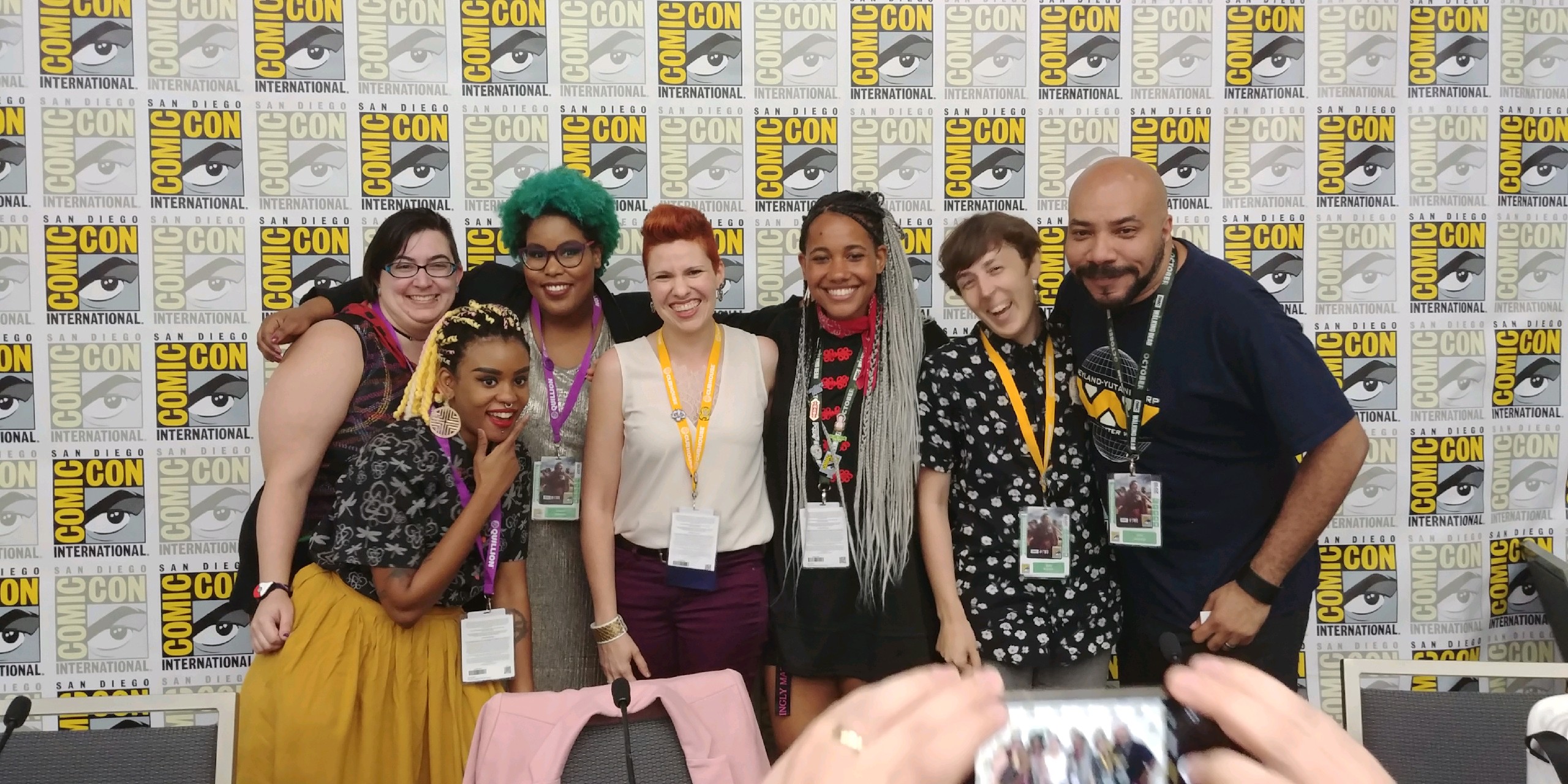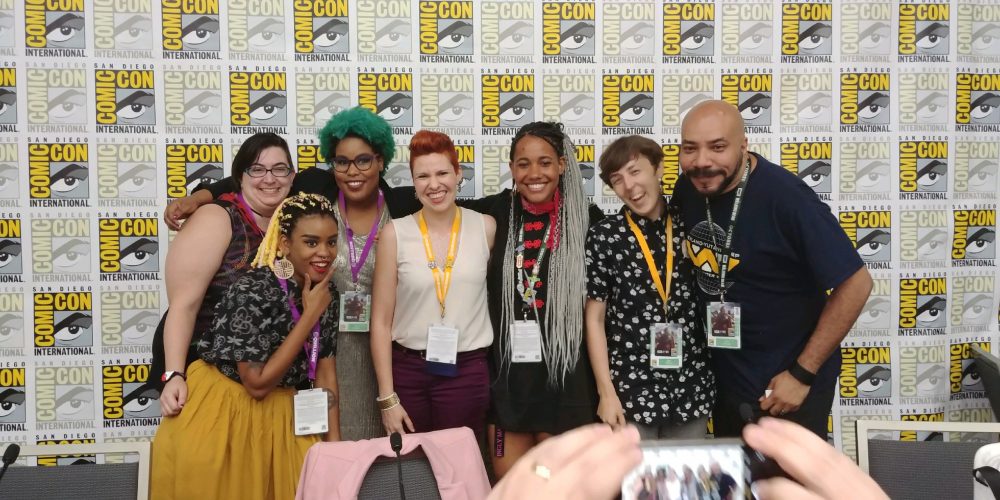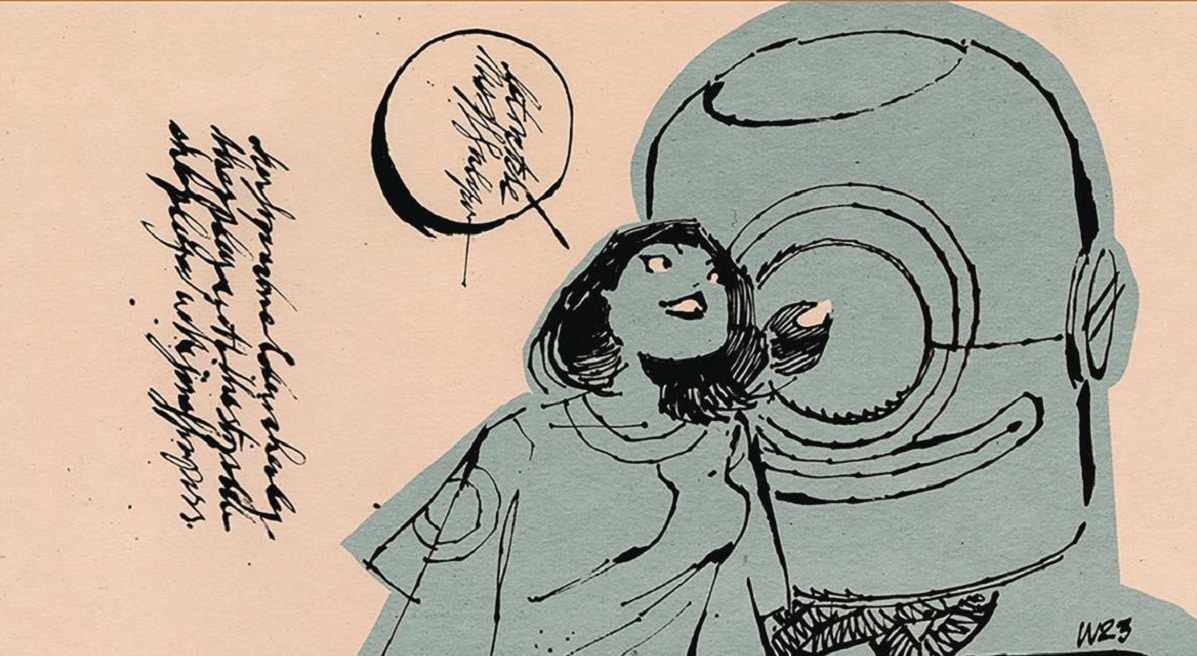When you see yourself represented in the world, you see your value. Comic books continue to be a home for stories of marginalized groups, but how best to keep the momentum and add more stories and voices? The Diversity and Inclusivity from the Perspective of Libraries, Publishing, Authors in the Industry panel, moderated by Christina “Steenz” Stewart (Lion Forge), had ideas on how best to do so.
Panelists Kathryn Kania (Librarian, Young Adult), Jenn Haines (The Dragon, Eisner Award Retailer), Amanda Meadows (Lion Forge, Editor), Che Grayson (Filmmaker), Maia Kobabe (The Nib, Artist), and John Jennings (Kindred, Professor of Visual Studies) shared how these stories could have shaped their own young lives and how they and others are responsible for creating and sharing even more perspectives in the stories they create.
Kathryn and Jenn, while not creators, noted how important it was to have safe spaces to acquire and read these stories for both kids and adults so as to discover themselves. These spaces provide the breathing room so readers don’t have to focus on the pressure of identity right away. Jenn also stressed that modeling the language of the space you want to create, in turn informs staff and customers as to the important vibe and ambience you hope to create.
The path for creators may be challenging, but John urged creators to carry on. “Institutions are really great at not changing. That’s their superpower. A lot of times you have to work from within.”
Che Grayson explained how she willingly takes on that challenge in her stories. “My responsibility is to actually be uncomfortable, and for me to put myself in uncomfortable spaces and to take people who are a danger to safe spaces, to those uncomfortable spaces with me.”
Che later recounted a story in which a friend was at a critical stress point of confusion and understanding which had her friend saying her head was about to explode. “Let your head explode. Because we’re tired of exploding on the inside with what we’re going through. You’ll be okay.”
Feeling okay and welcome is exactly what the panel wants more readers to feel. “If [Quick and Easy Guide to They/Them Pronouns] had been out when I was a kid, I would’ve been out as non-binary ten years ago.” The crowd had their own audible moment of understanding as well, when Kathryn passed on why her deaf patrons love graphic novels. “It’s the only way the deaf community can see how hearing people interact with other hearing people.”
The more new stories and viewpoints are shared the more change takes place and matters to those in search of belonging. Che said it best when speaking of readers seeing themselves represented in comics, “If we change the narrative enough it will no longer be ‘What is wrong with me?’. It will be ‘Who am I?’. No longer ‘What is wrong with me?’ or ‘Why am I not good enough?’”





